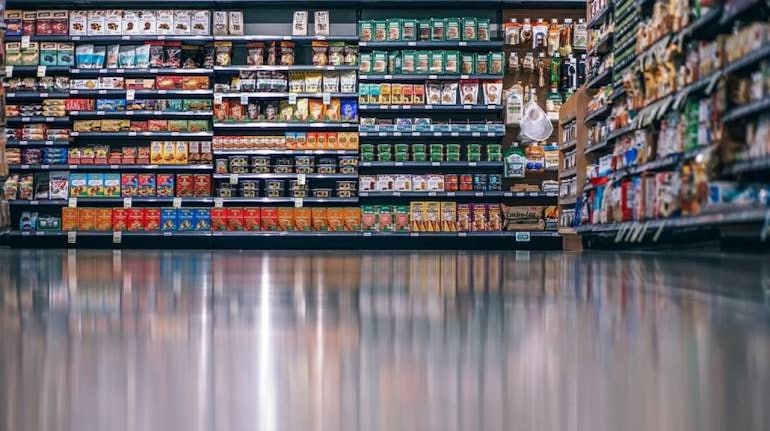



India's fast moving consumer goods (FMCG) sector is expected to witness flat growth in 2020 following severe and extended lockdowns, restrictions on manufacturing units, social distancing norms and store closures, according to data analytics firm Nielsen.
Earlier, on April 30, in the middle of the lockdown, Nielsen had slashed the growth forecast for the FMCG sector by almost half to 5-6 percent for 2020 citing adverse impact of the coronavirus pandemic.
Though the FMCG industry has shown some sign of improvements in June, but in the first half of the year (January-June) the industry growth slipped to negative with 6 percent decline.
"Keeping these unprecedented dynamics in the market, Nielsen has revised its outlook and is expecting the year to be in the flat growth range (-) 1 percent to 1 percent for branded FMCG industry in India, as against a 5-6 percent growth projected earlier this year," said Prasun Basu, President, South Asia Zone, Nielsen Global Connect.
This is the second revision of the forecast by Nielsen for 2020, amid coronavirus pandemic and subsequent disruption in the market and supply chain.
Nielsen had on January 21, projected a 9 to 10 percent growth for the FMCG industry with a 'stable' outlook on the back of favourable macroeconomic factors.
In a virtual conference to discuss FMCG snapshot for Q2, Basu said the June quarter had been the worst for the industry, with a 17 percent decline in sales value as compared to the same quarter of 2019.
He expects the growth witnessed in June to continue into the festive season in Q3 as food categories are expected to see a higher growth and get stronger in Q4.
According to Nielsen, which considers the calendar year for calculating its growth numbers, the second quarter, particularly in June, saw a bounce back in both traditional trade channels and e-commerce.
On the other hand, modern trade saw sales fall further as malls that opened in the Unlock 1.0 faced nominal footfalls. Despite sales reviving to near pre-COVID levels in June, the industry registered a negative growth of around 17 percent in Q2.
Demand for products Nielsen said the industry has seen a surge in demand for packaged wheat, biscuits and soaps as consumers stayed at home and spent largely on essentials.
Another trend that FMCG industry witnessed was the growth in high-margin premium segment, which is returning back to normalcy after declining during the lockdown.
As per Nielsen, non-food items witnessing a strong recovery during Unlock 1.0 and 2.0 as categories such as personal care and home care grew strongly in June.
Rural outperforms urban In June, the rural market grew three times all India FMCG growth. Urban India, which accounts for 64 percent of FMCG sales, grew a mere 0.04 percent in June compared to rural, which grew 12.5 percent.
Rural India contributes around 36 to 37 percent of total FMCG sales, a bulk of which is contributed by food items.
"Rural India has been comparatively insulated from COVID-19 so far, however its spread is now reaching the hinterland. Having said that, we do expect an overall positive uptick due to reverse migration," Nielsen said.
Moreover, Mahatma Gandhi National Rural Employment Guarantee Act (MGNREGA) wages are at record high and rural disbursement against the programme is more than double of same period last year, it added.
“Lower number of COVID-19 cases, normal and timely rainfall and several government schemes, including a Rs 40,000 crore increase in allocation of MGNREGA, upskilling of three lakh migrant workers and Rs 1 lakh crore agri infrastructure fund for farmers are some of the factors contributing to the rural growth story for the FMCG industry,” said Sharang Pant, Lead Retail Vertical and RMS, Nielsen Global Connect.
Follow our full coverage of the coronavirus pandemic here.
Discover the latest Business News, Sensex, and Nifty updates. Obtain Personal Finance insights, tax queries, and expert opinions on Moneycontrol or download the Moneycontrol App to stay updated!
Find the best of Al News in one place, specially curated for you every weekend.
Stay on top of the latest tech trends and biggest startup news.